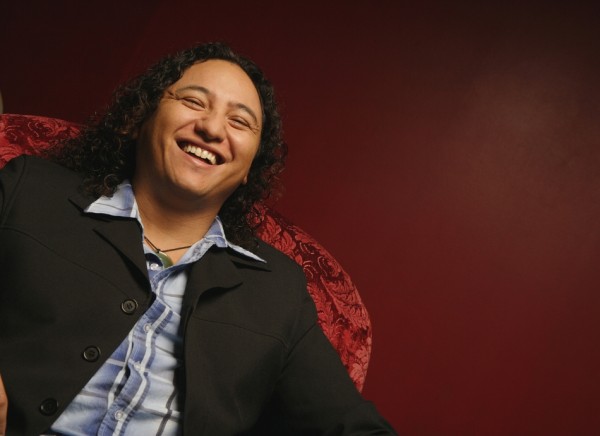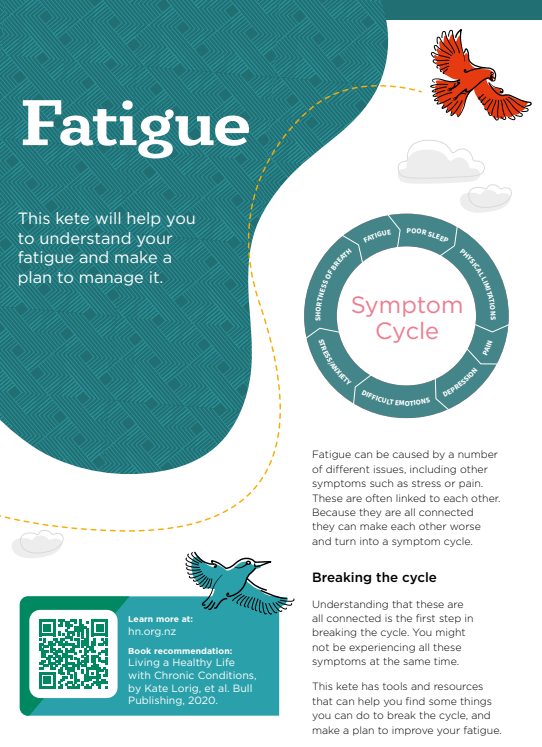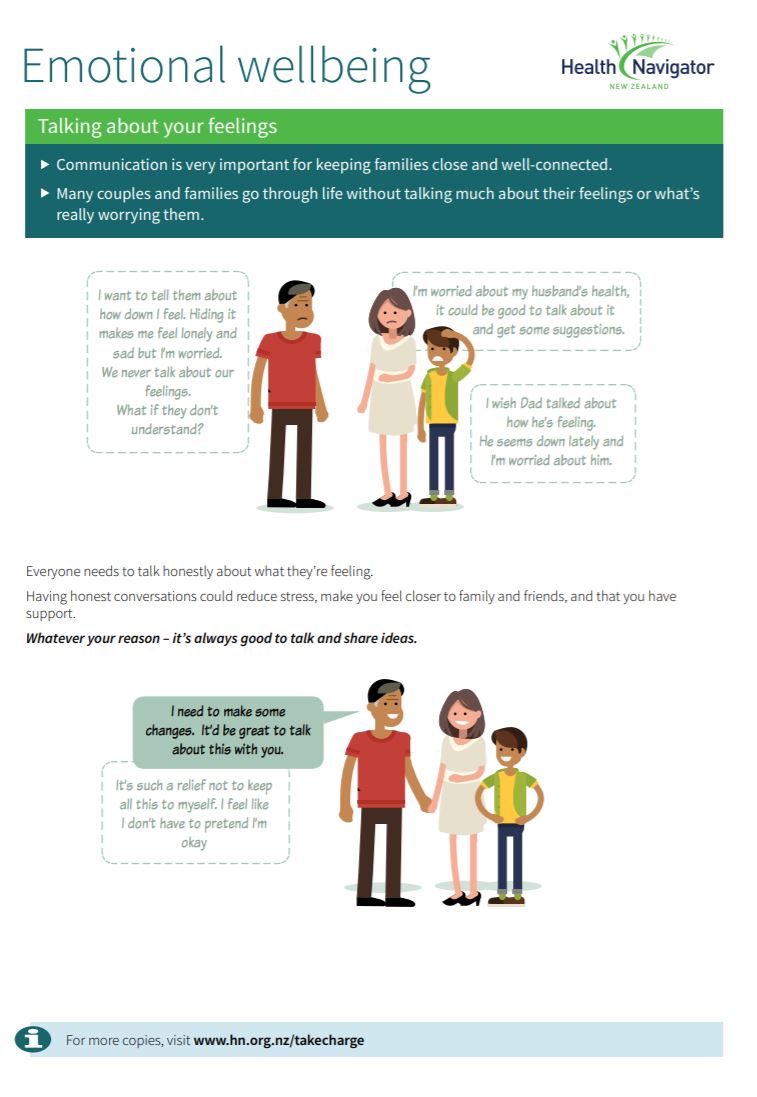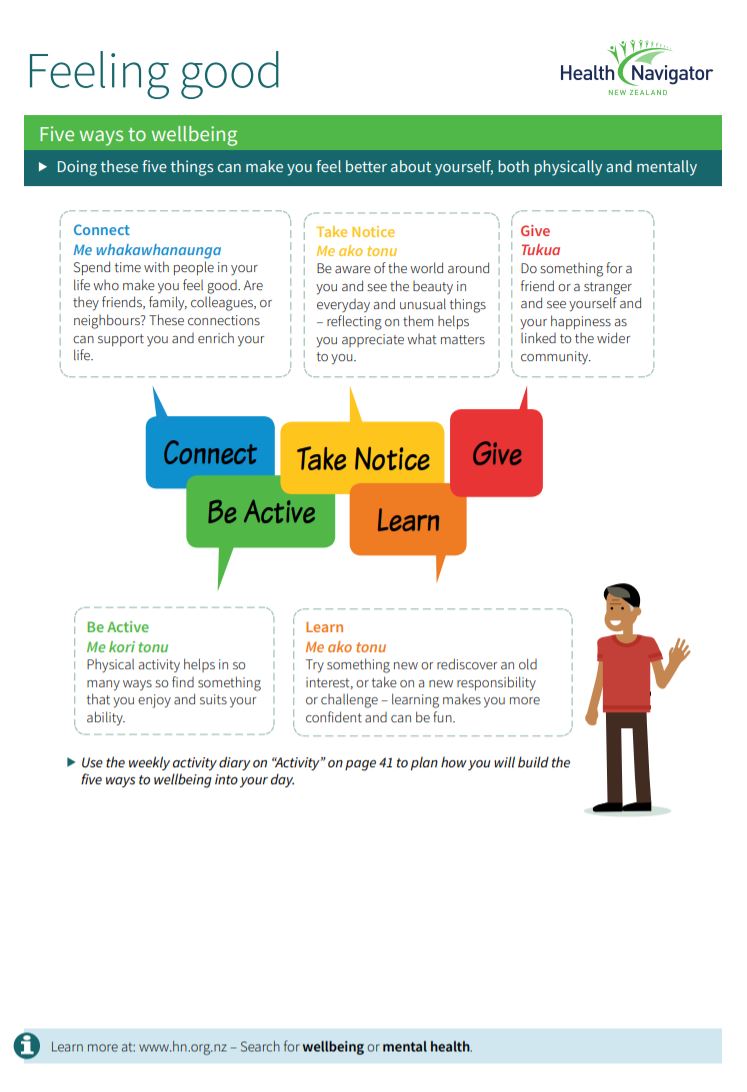You can now add Healthify as a preferred source on Google. Click here to see us when you search Google.
Practical advice to support you on those bad days
Key points about caring for your own mental wellbeing
- Having a routine shows you are worth looking after.
- Stay connected with people who care about you.
- Nourish your body and feed your soul.
- This page provides some practical advice to help you support your mental wellbeing, especially on the worst days when doing anything is challenging.

Mental distress, such as depression and anxiety, can be symptoms of other things going on in your life. This could be traumatic events, money problems, problems in the family or untreated physical health issues.
Mary Maringikura Campbell has been a consumer advisor for Healthify. A Cook Island Māori, Mary is passionate about treating people in a holistic way that looks after psychological and spiritual wellbeing as well as physical health.
“Stigma is the biggest issue we have to deal with,” she says. “If you have a physical illness, that’s acceptable, it’s no one’s fault. However, if you have a brain illness, you are treated very differently. It’s really important that you treat the whole person because every organ is interconnected.”
Drawing on her experience of what has worked for herself and other people, Mary has developed some practical advice to help your mental wellbeing, especially on the worst days when doing anything is challenging.
1. A morning routine
Having a routine, especially if you're not going out to work, is important – especially at the start of the day. The following things take time but remember that you are worth it.
- Looking after your personal hygiene is way of letting yourself know that you matter.
- Have a shower and enjoy taking this time to care for your body. You can exfoliate and moisturise your skin.
- Remember to brush and floss your teeth.
- Enjoy breakfast as a time to contemplate your day ahead.
- If you take medication, add this to your routine of things you do to care for yourself.
- If you have any washing you need to do, put it on. This is another way of telling yourself you matter.
2. Take a walk
- It doesn't have to be long.
- You could start by walking 10 minutes a day and build up from there.
- Find an exercise buddy. Having someone who is keen to exercise with you can be really helpful.
- Exercising benefits your body and brain. The increase of oxygen makes you feel so much better too.
3. Stay connected
- Staying in touch with whānau and friends who love you helps a lot.
- Being in touch with others who care can give you time out and change your focus from yourself, which helps if you feel anxious.
4. Nourish your body
- Start the day by eating something delicious such as cereal with fresh fruit for breakfast. Avoid sugary cereals. Eating a healthy breakfast is like putting petrol in your car – you need it to give you energy for your body and your brain.
- Eating healthy, unprocessed food is one of the most important things you can do for your mental health. It gives you energy and makes your body function well.
- If cooking is an issue for you, there are fruits and vegetables you can eat raw, or just throw potatoes in their skins into the oven. The internet and your local library are great resources for recipes or have a look at our healthy recipes library to suit all needs.
5. Feed your soul
- Laughter is important for your mental wellbeing. Join a library and hire fun DVDs or look up your favourite comedies on YouTube. The shift in your mood will surprise you!
- Being still is a great way to centre yourself. Find a place where you feel comfortable and just close your eyes and listen to the sounds around you. This can be very refreshing and restful.
- Buy a notebook and write down all the positive things that you have done in your day – they give you a sense of achievement, no matter how big or small they might seem.
If you have done these things to care for yourself at the start of the day and you want to go back to bed, that's okay. You can feel a sense of achievement that you have cared for yourself. Eventually, you may not feel the urge to go back to bed.
Be kind to yourself and remember that feelings change – they really do!

Image credit: Depositphotos
(TED, 2014)
Ignite(external link) Online NZ support to strengthen wellbeing
Brochures
Five ways to wellbeing bookmark(external link) (available to download free) Mental Health Foundation of New Zealand
Five ways five days folded wallet card(external link) (available to download free) Mental Health Foundation of New Zealand
Brochures

Healthify He Puna Waiora, NZ, 2022

Healthify He Puna Waiora, NZ

Healthify He Puna Waiora, NZ
Credits: Mary Maringikura Campbell, Healthfy Consumer Advisor
Reviewed by: Dr Emma Dunning, Clinical Editor and Advisor
Last reviewed:





